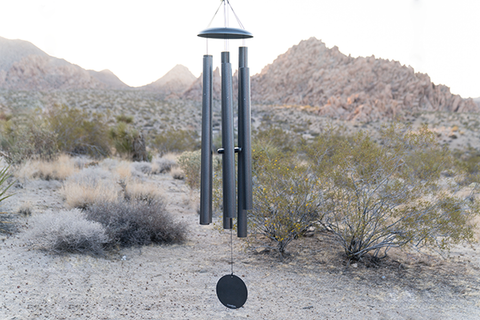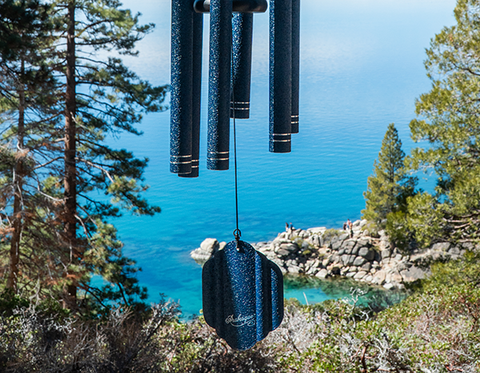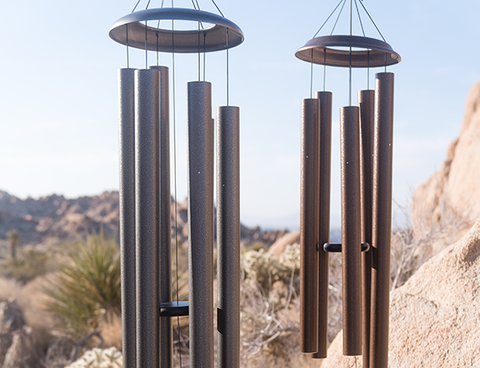
Introduction
Wind chimes have been used for thousands of years, serving as sources of enjoyment, musicality, spiritual symbols, decorative art, and tools for attracting positive energy. Their origins span ancient China, Japan, India, and Western civilizations, each culture attributing unique meanings to their melodic sounds.
In this guide, we’ll explore the history, symbolism, and cultural significance of wind chimes across different traditions.
Table of Contents
The Ancient Origins of Wind Chimes
Wind chimes date back to 3000 BCE and were first used in Asian, Mediterranean, and Egyptian civilizations.
China (Feng Shui & Spiritual Protection)
- Earliest wind chimes were made of bone, jade, or bronze to ward off evil spirits.
- Used in temples and palaces to attract good fortune and balance energy (Chi).
- Modern‑day Feng Shui practices still use wind chimes to enhance prosperity and harmony.
Japan (Fūrin & Seasonal Tradition)
- Fūrin wind chimes are made of glass or metal and hung outside homes during summer.
- Believed to cool the mind and symbolize tranquility.
- Traditionally used in Buddhist temples to mark prayers and meditation sessions.
India (Spiritual & Ritual Uses)
- Wind bells were hung in Hindu and Buddhist temples to create a sacred sound.
- Symbolized the presence of deities and were rung during ceremonies.
- Used in meditation and yoga practices to promote inner peace.
Ancient Rome & Greece (Protection & Decoration)
- Romans used bronze wind chimes (Tintinnabulum) to ward off evil spirits.
- Greeks crafted chimes as musical instruments and for temple rituals.
Wind Chimes in Modern Culture
Today, wind chimes are widely used for decoration, relaxation, spiritual practices, and gifting.
Western Uses (Aesthetic & Healing)
- Popular in gardens, patios, and memorial spaces.
- Used in sound therapy to promote relaxation.
- Given as memorial gifts to honor loved ones.
Feng Shui & Energy Practices
- Metal chimes placed in north or west areas are said to attract success and prosperity.
- Bamboo chimes in east or southeast are believed to enhance growth and balance.
- Used to clear negative energy and invite positive vibrations.
Symbolic Meanings of Wind Chimes
Different cultures attribute unique meanings to wind chimes:
- Protection & Warding Off Negativity – Ancient Rome, China, and Japan.
- Good Luck & Prosperity – Feng Shui, Hindu temples, and business entrances.
- Healing & Meditation – Used in sound therapy, yoga, and spiritual rituals.
- Remembrance & Tribute – Common in memorial gardens and sympathy gifts.
Frequently Asked Questions About Wind Chime Origins
Q: What culture invented wind chimes?
Wind chimes were first used in China, India, and ancient Rome, each with different purposes.
Q: Why are wind chimes sometimes used in sacred locations?
They are believed to represent positive spirits, cleanse energy, and create a sacred atmosphere.
Q: Are wind chimes only for outdoor use?
No! Many cultures place wind chimes indoors near altars or meditation areas.
Q: Do wind chimes have religious significance?
They can, depending on where and how they are used. Hindu, Buddhist, and Taoist traditions often use chimes for spiritual practices.
Conclusion
Wind chimes have a rich history spanning centuries and cultures, serving as sources of enjoyment, musicality, spiritual symbols, and remembrance. Whether used for relaxation, contemplation, or spiritual purposes, their timeless melodies continue to bring harmony and positive energy to modern life.


